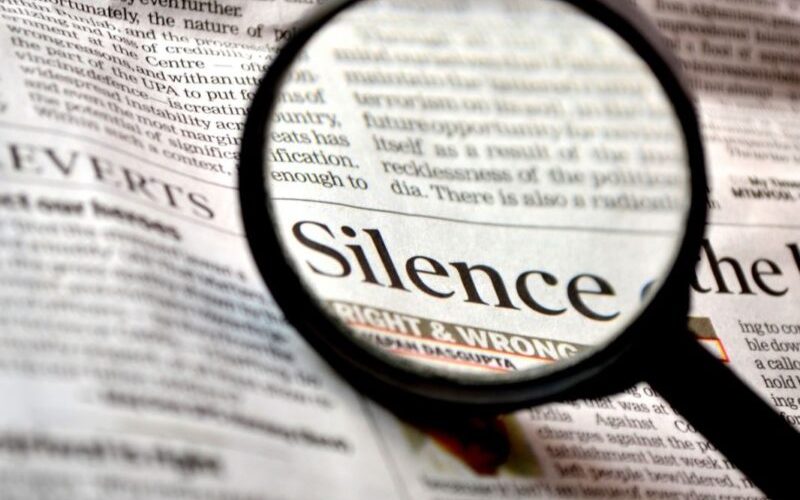Suppose you were a reporter without an agenda, no ax to grind, no political affiliation. You never stepped foot inside a school of journalism. Even better, following in the tradition of old-time journalists like H. L. Mencken, Ernest Hemingway, or Rose Wilder Lane, you never attended college. You read history, economics, and political science, you got hands-on experience working for several small papers and internet outfits, and you wrote reams of prose under the guidance of some old-school editors who had no qualms about tearing apart your work and telling you when it was baloney.
Now in your late twenties, you see yourself as a journalist with but one mission: to report facts—who, what, where, when, why, and how—as clearly and as truthfully as possible to the public. You believe in research, in digging below the surface of a story, and then, in as an unbiased manner as possible, you write up your findings and deliver them to your fellow citizens.
With the money you earn and with the help of your spouse’s income, you’re able to survive financially. At one point, inspired by the Julie Kelly’s articles at American Greatness, you decide to explore the Jan. 6th incident at the Capitol. You spend much of your free time conducting phone interviews with those who were there, you look into their backgrounds, you watch video footage and read reports about police allowing protestors into the Capitol building, you even manage a few anonymous interviews with some of those officers revealing some possible federal chicanery in stirring the pot of that so-called “insurrection.”
Unfortunately, you’re about to realize that your adversary as a truth-seeker is not the American people. It’s not even the swamp in Washington, D.C. It’s the mainstream media.
You approach some major newspapers and news outlets with the information you’ve gleaned, but they’re not interested. Eventually, your story ends up on some online site like the Daily Wire, where it rouses a small commotion but little more. The story dies there, and you soon realize that the old adage “The truth will out” is as dead in the realm of journalism as the stories on sex trafficker Jeffrey Epstein, Hunter Biden’s laptop, or the corrupt ties between some American politicians and officials in China or the Ukraine.
Since its founding, Americans have depended on an independent press to help preserve our liberty. We looked to those “ink-stained wretches” as watchdogs guarding our republic against public and private corruption, against lies and twisted truths.
That press often failed in this mission. As far back as the Founding Fathers, we see dissatisfied politicians and other public figures complaining about an abusive press. Often these complaints were justified, but on other occasions they arrived on the heels of some truth a journalist had brought to the attention of readers.
Occasionally, journalists in the past deliberately deceived the American public—or else were themselves deluded. The classic case is that of Stalinist apologist Walter Duranty, who won the 1932 Pulitzer Prize for his coverage of the Soviet Union, but who turned a blind eye to communist mass murders and other atrocities, including the policy of farm collectivization in the Ukraine that left millions of people dead from starvation.
Today many Americans distrust the press. Years of the media’s manipulations, the censoring or exclusion of certain stories, and the replacement of facts with opinions have erased that confidence, so much so that a 2021 poll found the U.S. news media ranks last in trust among 46 countries.
That’s a disaster, not just for our major papers and television news outlets—which have experienced a large drop in readership/viewership in the last year—but for the rest of us as well. When we can’t believe the news, which is supposed to be vetted, checked, and doublechecked, we turn to internet sources that at least give a different and seemingly more reliable perspective. One consequence of this misinformation and confusion is our sharply divided nation.
The solution to this mess is simple and must come from our news rooms. Reporters, editors, and owners should put aside their personal politics and prejudices and begin reporting the facts. When the Russians, for example, bombard some city in the Ukraine, just tell us about the event without the added commentary—some might call it propaganda—aimed at glorifying Ukraine. When gas prices are skyrocketing, explain that a large part of the increase at the pump is the result of the Biden administration’s policies locking down our oil and natural gas industries. When Hunter Biden’s vile laptop pops up during an election, don’t sweep that dirt under the rug.
If you want your audience back, report the facts. If circumstances allow, report the truth.
That’s how trust is restored.
“Easy-peasy,” as my 5-year-old grandson might say.
—
Image Credit: Pxhere


















